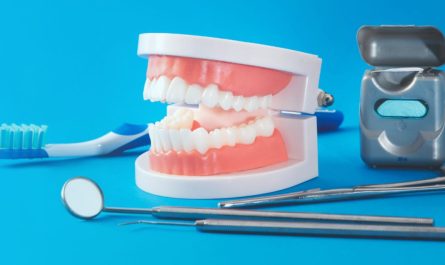If you’re having some pain in your back, neck, or head at night, there are a few things you can do to help.
Night pain can be a debilitating condition, but it is possible to find relief through natural remedies as well.
Whether you’re taking a pill, using herbs, teas, aromatherapy, rubbing your body with a cool gel pad, or avoiding certain activities, there are more than a few ways to deal with this problem. inpatient drug rehab massachusetts
Table of Contents
Why is Pain Usually Worse at Night?
Pain can keep you awake. It can be a very worrying and frustrating experience. If you are experiencing pain while trying to sleep, it is a good idea to check with your physician. Getting some advice from a professional can make a huge difference in the quality of your sleep.
Pain can become worse at night for various reasons, including increased stress and anxiety levels, decreased activity during the day, changes in body temperature, or other physical discomforts that may come with sleeping.
All of these factors add up to a higher level of pain experienced during the night. In addition, many people who suffer from chronic pain often have difficulty sleeping due to the pain. This can lead to further discomfort and an even higher level of pain that can last through the night.
Hormones like cortisol and prolactin may play a role in intensifying pain at night as well. Cortisol levels tend to be highest during the night, while prolactin levels tend to surge in the morning, which can lead to an increase in perceived pain.
Having a good night’s sleep is important for people who suffer from chronic pain. While it is not possible to cure the condition, you can improve your sleeping habits and manage your symptoms.
How Do You Mentally Deal With Physical Pain?
If you are experiencing physical pain at night, you may feel frustrated because your sleep is not as restful. The good news is that there are ways to deal with it. By incorporating self-help strategies into your lifestyle, you can control the effects of your pain.
Focus on Deep Breathing
One of the best ways to mentally deal with physical pain through the night is by focusing on deep breathing. Taking slow, full breaths can help you relax your body and distract yourself from the pain.
Visualize a Peaceful Image
Visualizing a peaceful image or place can help to reduce tension in your muscles. Practicing progressive muscle relaxation, in which you gradually tense and relax all of your muscles, can also help to alleviate pain.
Meditiate
Using relaxation techniques like meditation and guided imagery can be helpful in relieving some of your discomfort. These techniques help to quiet the mind and relax the body, which can make it easier to fall asleep.
Avoid Activities That Will Aggravate Your Pain
It is also important to avoid activities that will aggravate your pain, such as sitting or standing for too long, or engaging in stressful activities. If you need to move around during the night, opt for gentle stretching exercises instead.
Ibuprofen and Diphenhydramine for Night Pain
Diphenhydramine and ibuprofen are medicines that are used for the treatment of occasional pain-induced insomnia.
Both medications work by blocking the production of prostaglandins and proteins in the body. They also help to reduce fever and sleepiness. The medicines are available in various forms, including tablets, capsules, and liquids. They are an effective and instant way to get rid of the pain at night but should be a solution for a short run only.
Be careful with the dosage. Taking too much ibuprofen or diphenhydramine can cause serious problems, especially if you are pregnant. It is recommended that you do not take this medicine if you have heart problems or asthma.
These conditions can increase the risk of a fatal heart attack or stroke. In addition, ibuprofen can pass into breast milk and cause severe kidney damage in a newborn.
Acetaminophen and Diphenhydramine for Night Pain
Acetaminophen and diphenhydramine is a combination medicine used to treat occasional insomnia caused by acute pain. It may also be used to treat fever caused by colds and allergies.
If you are having difficulty sleeping due to pain, your doctor may recommend acetaminophen and diphenhydramine.
Acetaminophen is a pain reliever that works by blocking the production of certain chemicals in the body that cause pain and inflammation. It is usually taken every 4-6 hours as needed.
Diphenhydramine is an antihistamine that can help reduce the pain of muscle spasms, joint pain, and headaches. It is usually taken at bedtime to help you sleep better.
Both medications are generally safe when taken as directed, however, they can cause side effects such as drowsiness and dry mouth.
CBD for Night Pain
CBD can help you get the slumber you need, and it may even be a good preventative measure against pain-induced insomnia.
Studies have found that using CBD can improve your chances of getting a full night’s rest. One study found that nearly seventy percent of people who took CBD regularly reported a better night’s sleep.
As with all supplements, you should always speak to a healthcare professional before taking CBD. This is particularly true if you are using it to treat a medical condition.
Depending on your needs, you can take a variety of forms of CBD. They come in capsules, oils, or vape pens.
Takeaway
Taking medications as prescribed by your doctor, using relaxation techniques, avoiding distractions, and using heat or cold therapy are all helpful ways to manage pain at night.
However, locating the cause of the issue is the only correct way of dealing with pains that become chronic. Speak with your healthcare provider about any other options that may be available to you if these tips don’t help.



